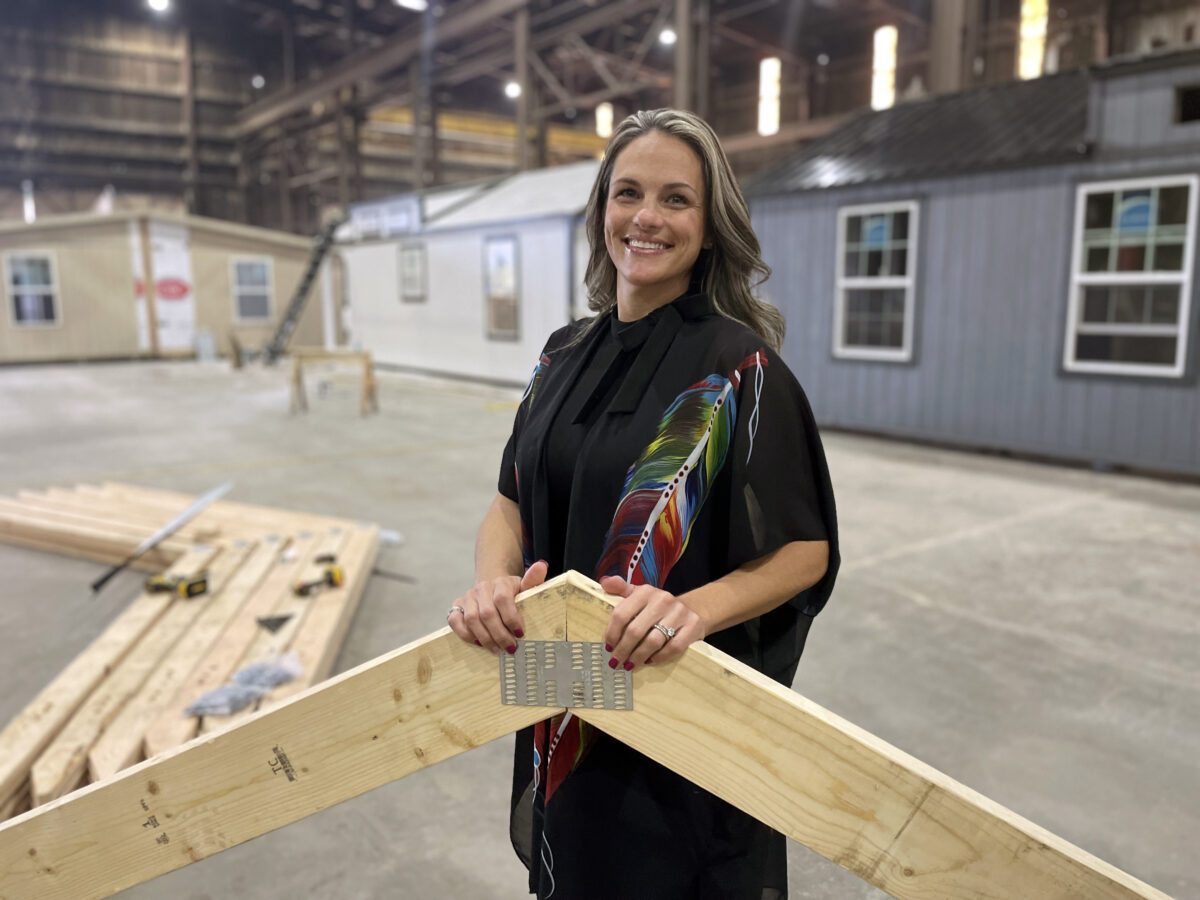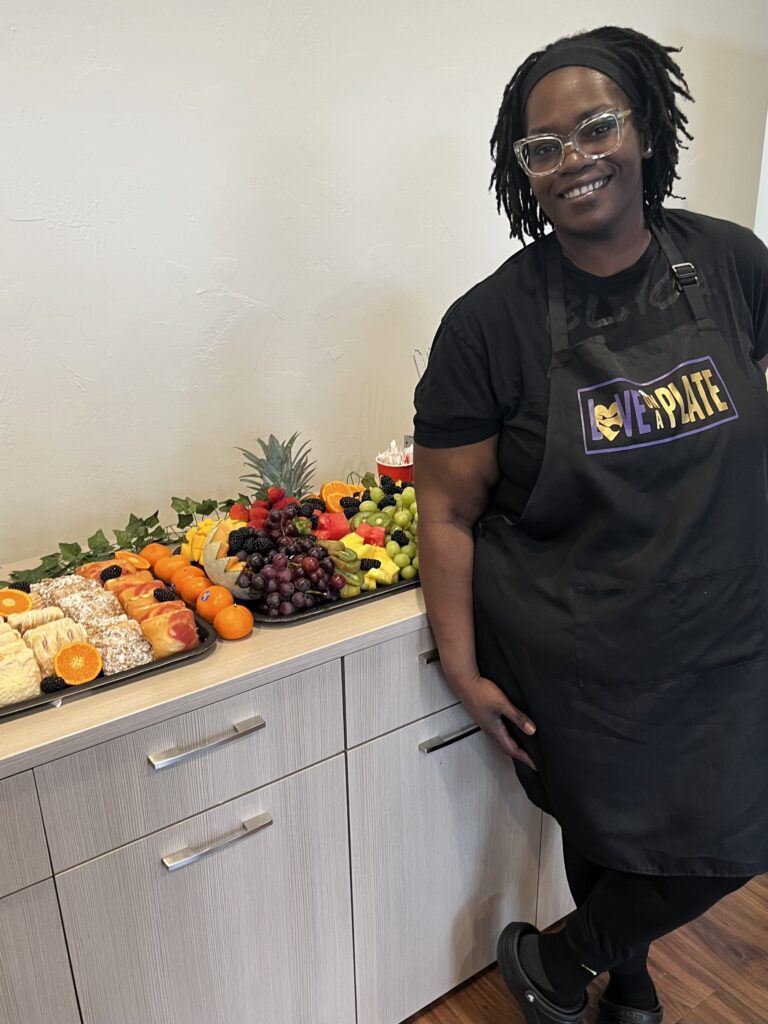Obstacles Female Business Owners Face
Women have made significant strides as business owners and entrepreneurs in the last five years. Between 2019 and 2024, women-owned businesses increased by 17%, generating $3.3 trillion in revenue nationally, according to the 2025 Impact Report by Wells Fargo.
Despite these advancements, gender inequity still exists. Securing funding is one of the biggest hurdles that women face when launching a business, with only 1.9% of the venture capital funding going to female-founded companies.
This gap becomes even more stark for women who belong to minority groups.
“Native American women are one of the most underfunded, under-resourced founder groups,” says Chris Wright, the director of the Center for Innovation and Entrepreneurship at the University of Tulsa.
A lack of funding can be attributed to two reasons. First, investors are prone to gender and racial biases. In a study published by the Harvard Business School, men who made identical pitches as their female counterparts were 60% more likely to receive funding.
The second reason is that women may struggle with leveraging the right connections.
“There are a lot of ladies that I work with that have been a stay-at-home mom for ten years, and they don’t have a close circle of friends,” explains Lakisha Meade, manager of business and entrepreneurial services at REI Oklahoma. “Setting up that stream of networking and friends can be a process.”
Additionally, women shoulder the majority of responsibility when it comes to unpaid caregiving for their children. The added pressure can make it difficult for women to focus on growing their business while maintaining a work-life balance.
Financing for Women Business Owners
Despite funding disparities between men- and women-led businesses, organizations across the state are committed to helping close this gap.
REI Oklahoma, which is dedicated to cultivating economic growth, established the REI Women’s Business Center over 20 years ago as an avenue for women to access training, networking and one-on-one support for their businesses.
By connecting with the organization’s business lending program, women can secure loans that they may not qualify for otherwise.
“We focus on the startup businesses that can’t go to the bank for a traditional loan,” says James Harrington, the vice president of business resources at REI Oklahoma. “About 50% of the people that we help with loans are women.”
Small business owners that export goods outside of Oklahoma may qualify for grant funding through the State Trade Expansion Program (STEP), an initiative established by the U.S. Small Business Administration. In addition to STEP, the SBA offers several investment programs for small businesses focused on technology and research.
To help Cherokee women access capital, the Cherokee Nation and University of Tulsa partnered to create the AcceleratHER Fellowship, a 12-week hybrid program that provides funding, mentorship and culturally relevant training to selected fellows.
“It’s a detriment to the community that we don’t always get to see [Native women’s] brilliant ideas come to life,” says Tralynna Scott, the chief economist for the Cherokee Nation and the Cherokee Nation special envoy to the U.S. Department of Treasury. “We want to instill confidence in this sub-demographic of entrepreneurs to really give them the courage to go for it.”
Women that are accepted into the AcceleratHER program receive a $10,000 non-dilutive seed grant to kickstart their businesses.
“For our city to thrive, we need to have programs and resources that are accessible to everybody,” explains Wright. “[These programs] are a differentiator for the city of Tulsa.”

Forming a Community
Networking is an essential skill for business owners and entrepreneurs. Having a sense of community to turn to for support can help women navigate challenges they may encounter when establishing and running a business.
Forming solid connections can also help entrepreneurs identify sales leads and partnerships, stay in-the-know about emerging trends, and increase the visibility of their brand. There are a variety of networking opportunities available to women and small business owners that take place throughout the year.
The Oklahoma Department of Commerce (ODC) hosts a series of Lunch & Learn meetings to help empower entrepreneurs with business strategies and relevant information. Ray Little, the director of entrepreneurship and small business at the ODC, helps lead the program. Topics covered include business licensing, tax requirements and forms and certifications.
“I’ve always been an entrepreneur at heart, and it’s my passion to help people start and achieve their dreams,” shares Little. “That’s how you get wealth in this country, by starting your own business and creating something out of nothing.”
Similarly, REI Oklahoma puts on the OKC Women’s Business Breakfast every first Thursday of the month.
“Whether you’re looking for a bookkeeper, an attorney or women who are in similar industries, this [event] is about making connections,” says Meade.
Local chambers, like the Tulsa Regional Chamber of Commerce and the Greater Oklahoma City Area Chamber of Commerce, are great resources for business owners, too. Usually a small fee is required to join, but they offer extensive events and networking opportunities geared at businesses of all sizes.
Social media can also be a networking tool. Facebook communities like the Tulsa Small Business Moms and the Tulsa Business Owners Networking Group are inclusive, online spaces that enable local business owners and entrepreneurs to promote their services, ask questions and mingle at in-person events.
Women-Owned Businesses to Support
Women have been the founders of schools, publications and medical facilities long before statehood. They continue to play a pivotal role in commerce.
“We have 205 women-certified businesses here in Oklahoma, and I think that’s amazing,” says Little.
Amanda Thompson, who was a fellow of the AcceleratHER program, received national recognition for her innovative business plan to help address unaffordable housing in Oklahoma. Her business, Prime Craftsman Homes, has built 49 tiny homes since 2024.
“The women in the program really see a need not only for themselves, but for their community,” says Scott. “That’s what I love about female-owned businesses.”
On a mission to increase literacy and create a community space for Black and Brown people, Onikah Asamoa-Caesar founded Fulton Street Books & Coffee in 2020. At least 70% of the books that she curates for the store are written by people of color or marginalized communities. Other women-led businesses in Tulsa include Buck Atom’s Curio Shop, the Wildflower Café and Dog Dish.
Oklahoma City is home to several women-led businesses, as well. Founded by Tammy Greenman, Kelsey Karper, Laurent Massenat, Hugh Meade and Laura Phillips-Shin, Factory Obscura is an immersive art experience that strives to spark wonder and connection. Plant People, Painted Door and Boom Town Creamery are a few other beloved businesses in the area that are owned and operated by women.
What It Takes

The life of an entrepreneur is filled with uncertainty, adversity and sometimes, great success. Women that choose to establish a business often possess strong leadership skills and other characteristics.
Some of the key traits that an entrepreneur must have are adaptability and problem-solving. These characteristics help them overcome short-term roadblocks and rejection. Most businesses do not take off overnight; on average, it takes a small business at least 2–3 to start turning a profit.
“Resilience is important,” says Wright.
Business owners must have a strong vision for their business. By clearly articulating their short- and long-term goals, they can motivate others to buy into their ideas and give direction to stakeholders and employees.
Equally as important is a healthy dose of confidence and competitiveness. Business owners need to be willing to share their achievements, network and persuade investors to earn capital. They also need to understand what differentiates their company from other market options.
Without a doubt, every business leader needs an understanding of business fundamentals – from accounting to marketing.
“I’d recommend having a very good business plan to start with and doing some market research,” adds Harrington. “Connect with the people at REI Oklahoma and explore other resources to really build out a successful plan.”
Perfecting Your Pitch

Investors usually take a few minutes to listen and review a business pitch before making up their minds. Grab their attention, and be ready to strike while the iron is hot with these tips:
• Practice, practice, practice.
• Personalize your pitch to your audience.
• Communicate your business model and go-to market.
• Provide financials to illustrate how investors can benefit.
• End with a call to action.
As an entrepreneur, Wright weighs in on what makes a pitch great: “Some of the best pitches that I’ve seen are when the founders are able to communicate a real, personal connection to the problem they’re solving,” he says. “The storytelling component is really important.”






















